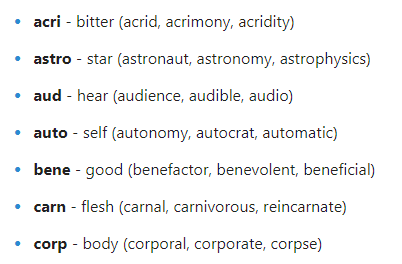
If there’s one thing that almost every English student, regardless of level, struggles with, it’s how to improve their English comprehension.
During my time as an English teacher, I’ve noticed a pretty common problem arising among students when it comes time for them to read –
“What am I supposed to do when I come across a word that I don’t understand?”
This is a notoriously challenging situation that has happened more than once in our recent English conversation classes, especially since we’re reading an upper-intermediate level book right now.
It’s a perfectly reasonable question – After all, English incorporates vocabulary from multiple languages, and many words can have a variety of meanings. Learning it all is a huge challenge!
And, it can be made even more difficult if you don’t have your confidence built up from practice.
Consider this – Do you believe that every English speaker knows every single word we read or hear, especially in the higher-difficulty books and conversations?
Of course not! I’m an English teacher, and I frequently come across completely new words when reading. So, how do we understand what’s actually being said?
Root words!

A root word is the most basic part of a word, which can have prefixes and suffixes added on to create new words.
Root words are used as a basis for the majority of English words – So, if you know the root words meaning, you can also begin to understand the general meaning of the overall word.
In other words – If you can memorize the definition of 30 root words, you’ll now understand the 300+ English words they are used in. Think of how quickly you will be able to improve your English comprehension if you have access to all this new vocabulary.
Root words come from Latin and Greek, and are generally very short, so they should be pretty simple to remember!
Let’s take a look at some examples:
In the word Astrology, the root would be “Astro” – It originates from Greek, and means “star”.
If we know “Astro” means star, we automatically know the definition of “Astrology” is related to stars.
And, we know the suffix “logy” means “the study of”. Put it together, and what do we have?
Do you see how this might be able to help you? You could be reading an English book, and come across the word “Astrology” – Even if you’ve never seen the word before, if you understand the meaning of the root “Astro”, you can automatically determine what the word means without the use of a dictionary.
Here, let’s take a look at another example – The root word “Bene” (pronounced “beh-neh”)
This root word is used for longer words, including “Benevolent”, “Benefactor” “Benevolence” “Benign”, “Benediction”, and at least ten others.
Maybe you don’t have any idea what all of these words mean – They’re not super common, and they’re pretty complex.
But, you can see the root word of “Bene” in all of them, right?
So if you understand what “Bene” means, you can also understand the general definition of all of these words, without studying them individually. If they’re in a sentence, you can probably figure out what they mean based on the context and root word alone.
Definition: “Bene” means Good.
Think about these sentences, and how you can use the root word and context in them to understand the meaning.
- The benefactor decided to remain anonymous after his large donation to the hospital.
- Benefactor: Someone who helps another person/group – Someone good.
- The cancerous tumor was benign – It wasn’t as big of a danger as we thought.
- Benign: Something harmless.
- Our king was a kind man – His charity demonstrated his benevolence.
- Benevolence: A desire to do good, or to be a good person.
Is this starting to make sense? Do you see how this might improve your English comprehension?
One more exercise…
I’m going to write a pretty difficult, advanced-level English paragraph. Using the list of root words provided below, try and see if you can understand the general meaning of the paragraph WITHOUT using a dictionary.
Root words:
- Cred = believe
- Tele = far away
- Cardio = heart
- Derm = skin
- Mal = bad
- Micro = small
Using these root word definitions, the paragraph means something like this:
It was hard to believe the phone salesman (who is far away) – His claims of the device being able to improve the heart and skin health of users was crazy. After all, what would happen if it didn’t work / worked badly, or caused some small damage to my body that I wouldn’t be able to see?
So, how do we study root words?
To study root words, just use the same method you use to study normal vocabulary! If you want to take it up a level, put a few example words using the root word on your flashcards with the definition. You could have something like this…
Learning root words is way more efficient than studying every English word on their own, and is a very quick method of improving your comprehension. I STRONGLY recommend that every English learner give this a try!
Just spend 30 minutes a day studying these root words, and in a few weeks you’ll have 50+ root words memorized.
Assuming every root word is used in ten English words, you now understand the general meaning of 500+ English words without studying any of them on their own!
Give this method a shot and see how much easier reading and listening become! If you’re interested, try signing up for our monthly English lesson plan to practice what you learn!
For a full list of English root words, use this website – And if you want to just study the most popular root words, I suggest you go here.
Good luck in your studies!




